Meet CHAI: The Four-Piece Band Hailing from Nagoya, Japan Ready to Make Their Mark
This interview originally appeared in the print version of She Shreds Issue #15, which was released in July, 2018.
CHAI bursts with an energy that is carefree, effervescent, and unmistakably feminine; often taking to the stage clad in pink silk pajamas with a chaos reminiscent of Shonen Knife, The Slits, and Chicks on Speed. But don’t write CHAI off as just kawaii, Japanese for cute and a word that conjures an image of all things docile and doll-like; kawaii is a label they find limiting. Instead they invite you into their world of N.E.O. kawaii. N.E.O. stands for New Exciting Onna (woman in Japanese)—one where women and men alike love and celebrate their insecurities.
Hailing from Nagoya, Japan, the four-piece band is made up of twins Mana (vocals, keys) and Kana (guitar), Yuuki (bass), and Yuna (drums). CHAI has recently made their mark on the international music scene coming stateside in 2017 to play the Japan Nite showcase at SXSW and a subsequent U.S. tour. Earlier this year they played on the Burgermania VII stage at SXSW 2018, following the release of their debut album, Pink, on Burger Records. They recently released their third EP, WAGAMA-MANIA, in Japan on Otemoyan Records, and it is scheduled for international release on Burger Records soon.
She Shreds talked to Kana and Yuuki about their songwriting process, what it was like touring in America, and their plans to win a Grammy someday.
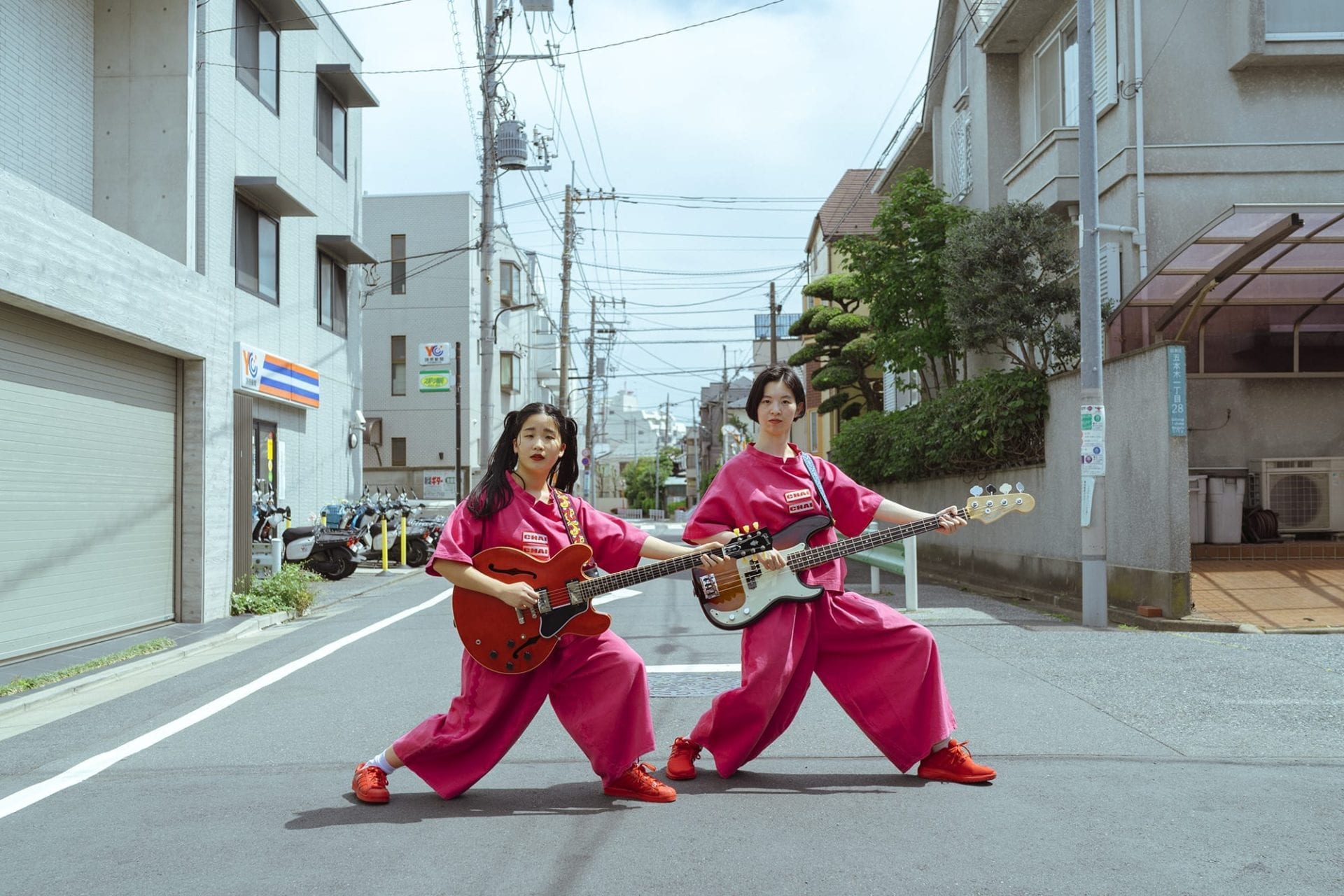
She Shreds: When did the band get started, and what inspired you to start playing music?
Yuuki: We started the band in 2015. We were all friends before that. Kana, Mana, and Yuna all played instruments in their high school music club. I didn’t know how to play bass, but I really liked music and so when Mana invited me to join the band I thought, “Why not?” And now we are here [laughs].
Kana: We just really wanted to have a band.
What was it like starting the band? Was there anyone who told you wouldn’t be able to make it?
Y: Because we are women? I don’t think so… but we were already pretty dedicated to the idea of making music, so it wouldn’t have mattered anyway.
K: I was in my school’s music club from way before. Yuna was really great at the drums, and it inspired me to have a band with only women in it. I think that there is a lot of meaning behind it.
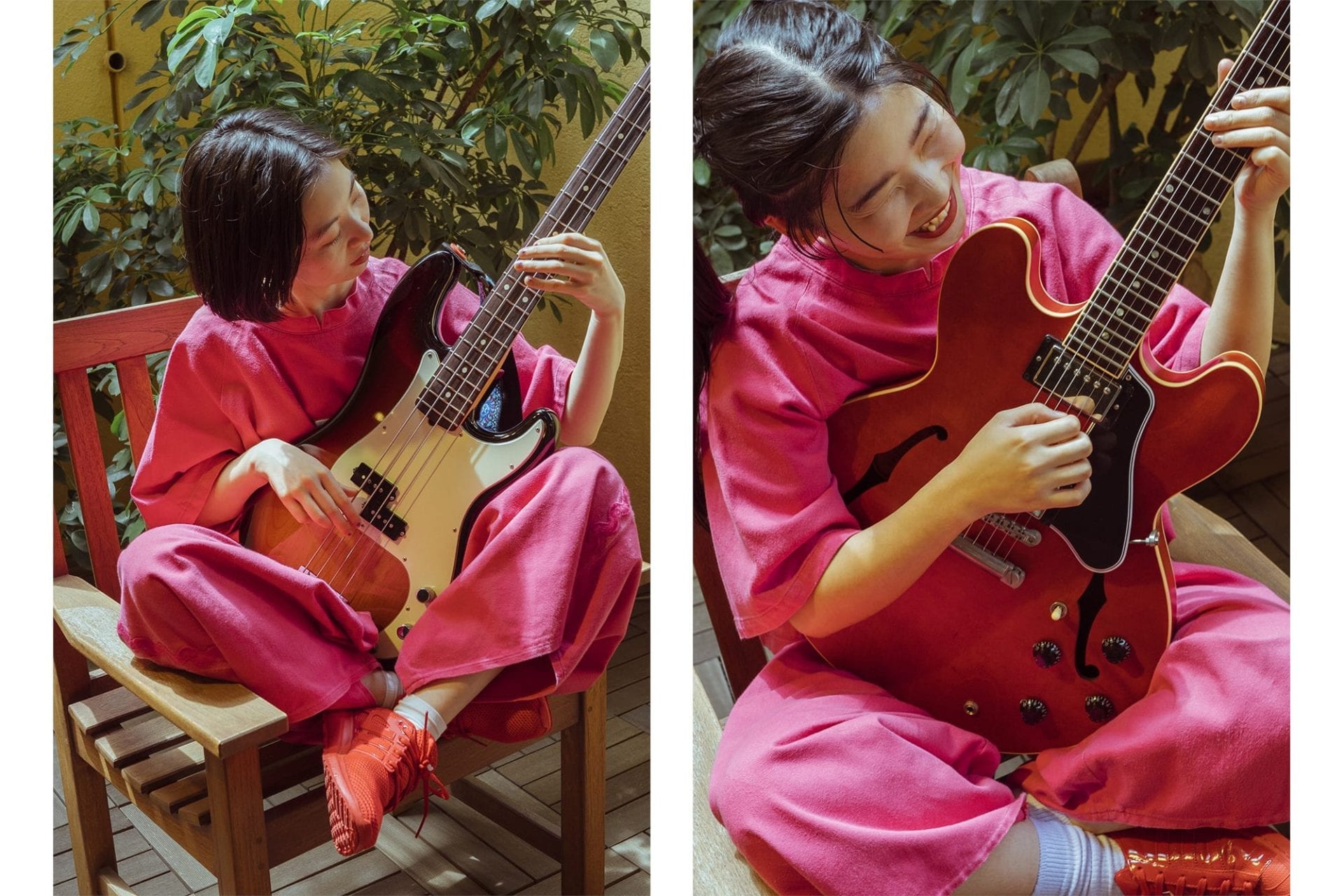
What do you feel the meaning is?
K: There tends to be more men putting their music out there, and I’ve felt for a long time that there is a certain sound that only women can make.
What is it like being women in Japan’s music scene?
Y: There is a really strong image here of men making music. They label us as a “girl band,” and it’s not that that’s wrong, but they see women as… How can I put it?
K: That we are “bad-good,” in a way. That we aren’t that good at what we do, but on closer inspection we are actually alright musicians.
Y: There’s a feeling like, “It’s women doing it so, whatever.” Like, women aren’t very good at making music, but they have to humor us. But it’s really only a few people who think like that.
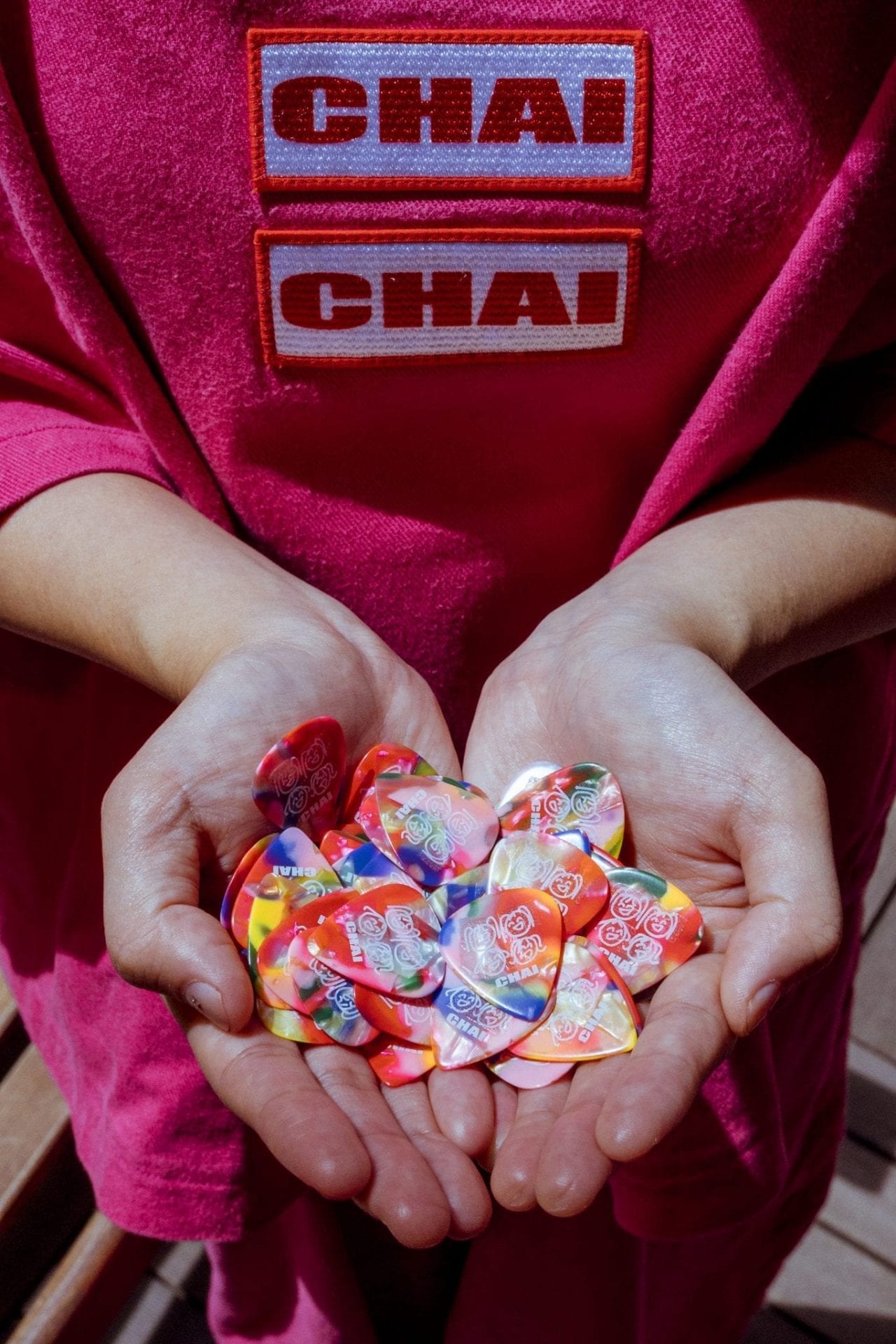
Why do you think Japan is so obsessed with kawaii? And why do women feel like they have to be cute in order to be accepted?
Y: Well, we all think everyone is perfect just the way they are.
K: Some people feel like they have to become someone else in order to be happy. They cut away at their own uniqueness, because they feel like they have to fit a certain image that society has constructed. There is an idea that if you don’t live up to those standards then people are going to call you ugly. We are all really against that way of thinking, so we created the idea of N.E.O. kawaii.
Can you tell me a little bit more about N.E.O. kawaii?
Y: In Japan right now, the ways in which people are considered kawaii are really limited. You have to have big eyes and thin legs. Anything outside of those limitations isn’t considered cute. All of us in CHAI think that is a really strange way of looking at the world. Each and everyone of us have our own individual traits, and all of those are kawaii in our eyes. There isn’t just one category of kawaii, or at least there shouldn’t be. We wanted to say, “Hey! All of you are amazing and perfect just the way you are!” So we came up with N.E.O. kawaii.
I feel like there are a few newer bands coming out of Japan that are really genre-defying, and CHAI is one of them. How do you decide what kind of styles to explore with your music?
K: We like rock, punk, dance music, really anything, so we want to give lots of different styles a try. I don’t really know if there are that many other bands in Japan doing that at the moment.
Y: Yeah, I get the feeling that there are a lot of people in Japan who feel like, “We are in a rock band so we have to play rock music.”
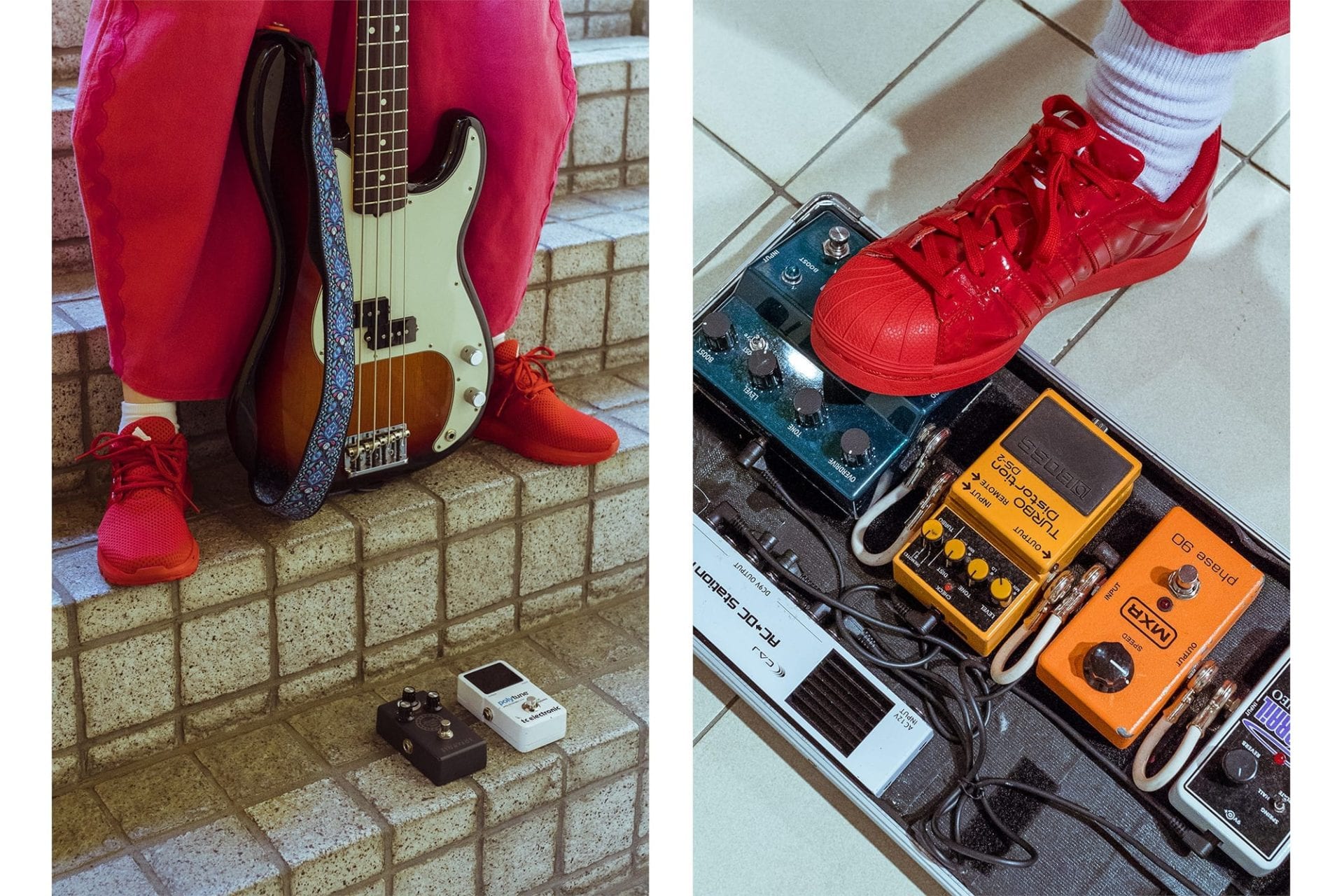
What kind of gear do you use? Is it the same for live performances and recording?
K: I use a Gibson ES-335, mainly because I like the sound of it. Sometimes I use a Fender Stratocaster when I’m recording. As far as pedals go, my pedalboard usually has a chorus, reverb, phaser, distortion, and an overdrive pedal.
Y: I use a Fender Precision for everything! It just feels so good when I’m playing it, and I like the sounds it makes. I only use a distortion pedal.
How do you feel about having your first album, Pink, released on Burger Records?
Both: We are so happy!
Y: We really want to take our music around the world, and Sean Bohrman and Lee Rikard have been able to help us do just that through the Burger release. Our show in Los Angeles this time around was really awesome. It was our first time meeting Sean, and there were so many Burger fans that came out to support us.
K: We also really want to spread our message of N.E.O. kawaii and we want to be a band that’s not just known in Asia, but is playing around the world!
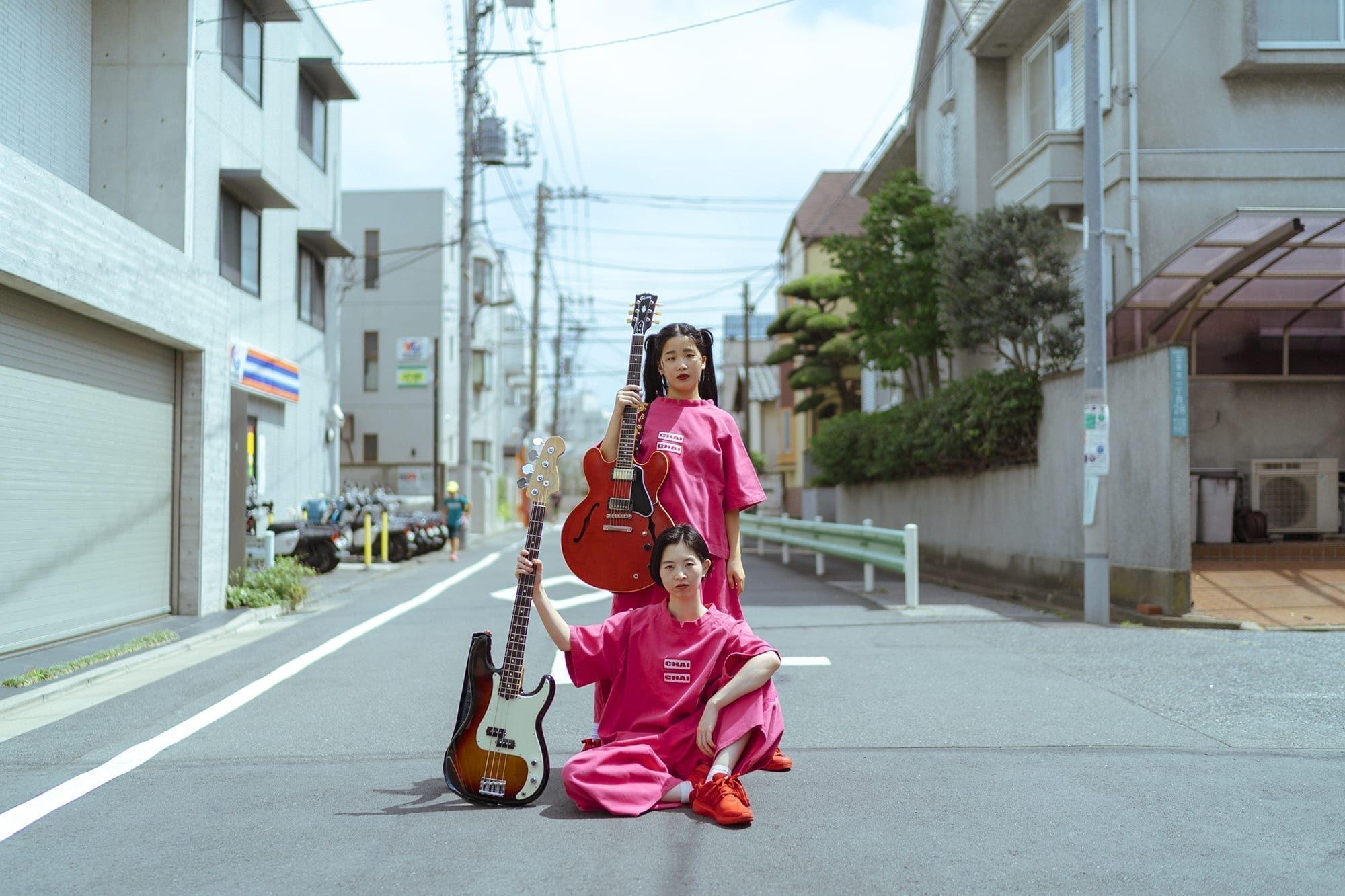
What’s your impression of America after touring here?
K: Japan is really meticulous about making sure everything is in working order and running smoothly, so we were surprised when we went to some concert venues in America and things were kind of a mess. Sometimes things would be broken and there were always so many things missing. From time to time there just wasn’t the gear we expected to be there. We were pretty surprised [laughs]. But we had a lot fun anyway!
What about the difference in cultures that you noticed? What are audiences like in America versus Japan?
Y: Japanese people tend to be really shy. American people are much more frank and have this air about them where they just say whatever they are feeling at that moment. Japanese people tend to be more observant, and want to take everything in. Because Americans are more upfront about their feelings, they are more likely to dance and we were really happy about that. It made it really fun to play shows.
Are you working on any projects right now?
K: We are working on some new songs! And we’d like to go on another tour as soon as possible.
Y: And we just released a new EP in Japan.
What does your songwriting process look like?
K: Mana usually writes the melody, Yuuki writes the lyrics, and then we will all work on the arrangement together. It’s teamwork!
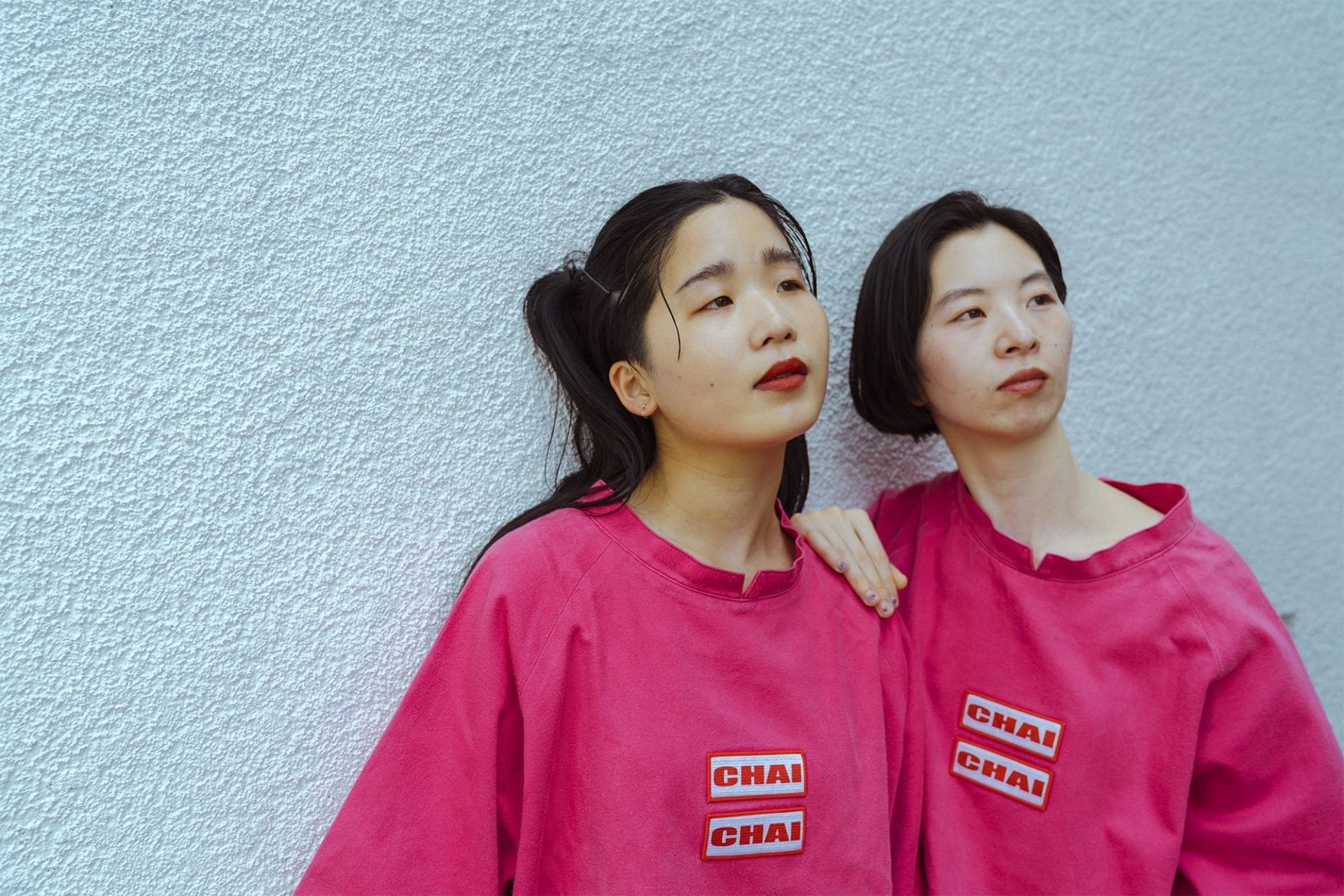
You guys have a great stage presence. It’s really fun to watch you jump and dance around.
Y: We just want to entertain people!
K: I think shows are better if they are also fun to watch. We think it’s cooler that way. Also, we want people to have a good time even if they don’t know our music and are just watching.
Yuuki, you also do a lot of illustration for the band, right?
Y: Yeah! Just like music, I didn’t study drawing before I started doing it. But I really enjoy it! I was interested in drawing even before we started the band.
So what did you study in school?
Y: Oh, I was making robots in university.
What?! Do you still make robots?
Y: I know it’s totally unrelated to music or drawing… but that’s what I did. They were just simple ones. Like you push a button and it dances kind of thing. Unfortunately I’ve already completely forgotten how to make them.
It would be awesome if you could make a robot that dances on stage with you.
Y: Oh yeah, that would be sick! We should do that someday.
So you have a song called “Boys Seco Men.” Can you explain what kind of men you are talking about?
Y: Everyone is really curious about that term. It’s a concept of a man, from the perspective of a woman. You know the type of guy: he looks really attractive and cool, but in reality he’s kind of cheap and dishonest. But even though you know he’s a player, you kind of end up falling for him anyway [laughs]. That kind of guy is trouble, so we wanted to write a song telling other women not to fall for people like that.
K: Yeah, it’s a song warning girls not to get tricked. We’re supporting other women!
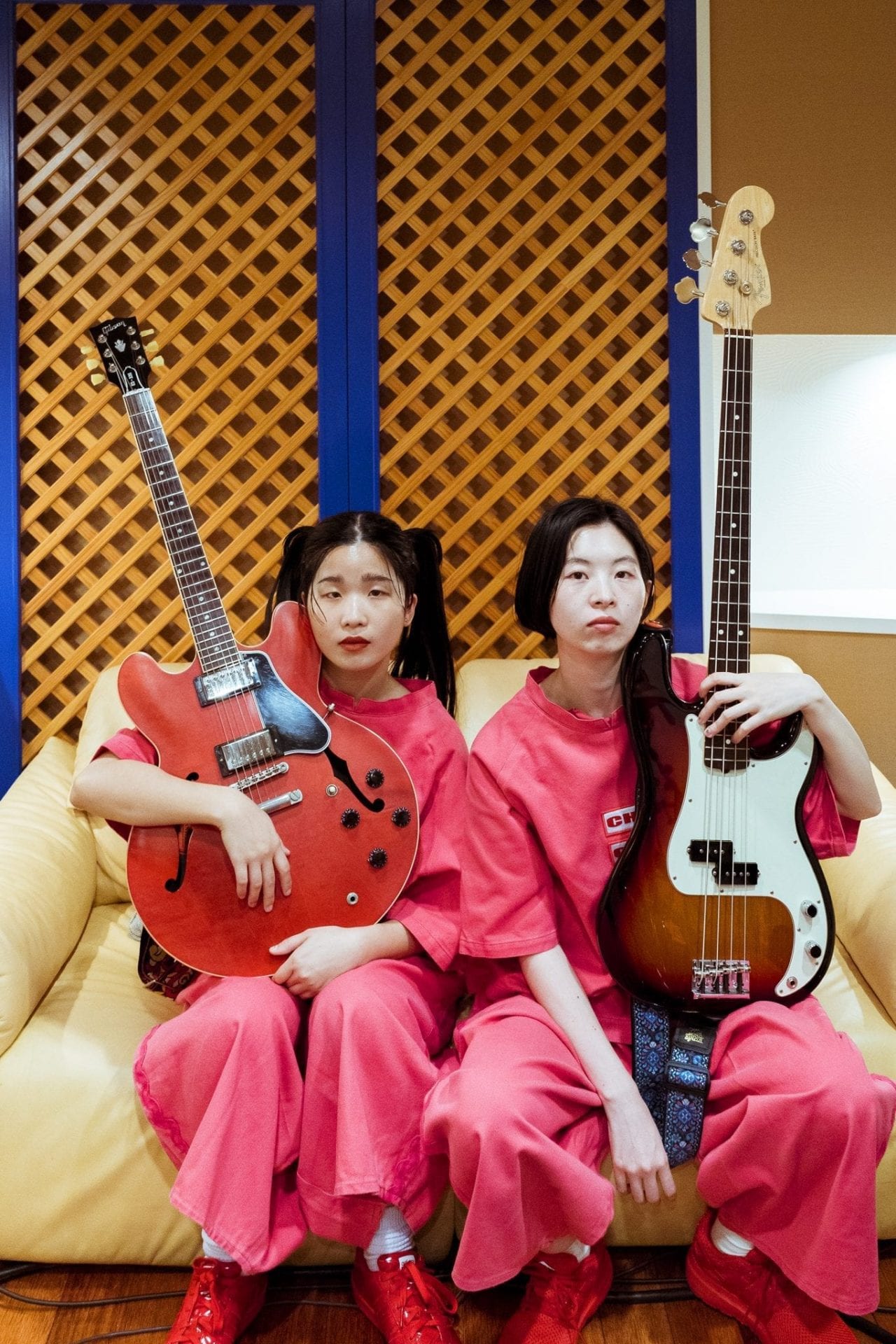
What do you want the world to know about CHAI?
K: If you’ve never heard of us or seen us before, please come and see us live. We are going to be the first female Japanese group to win a Grammy!
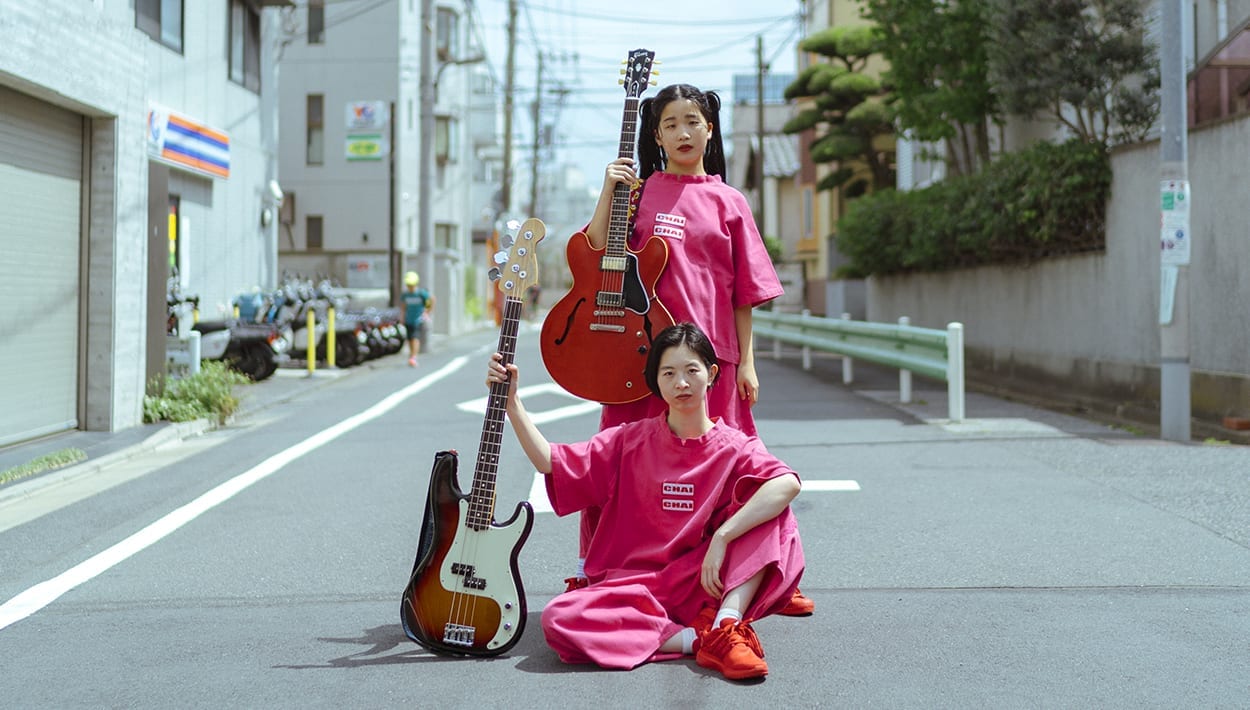

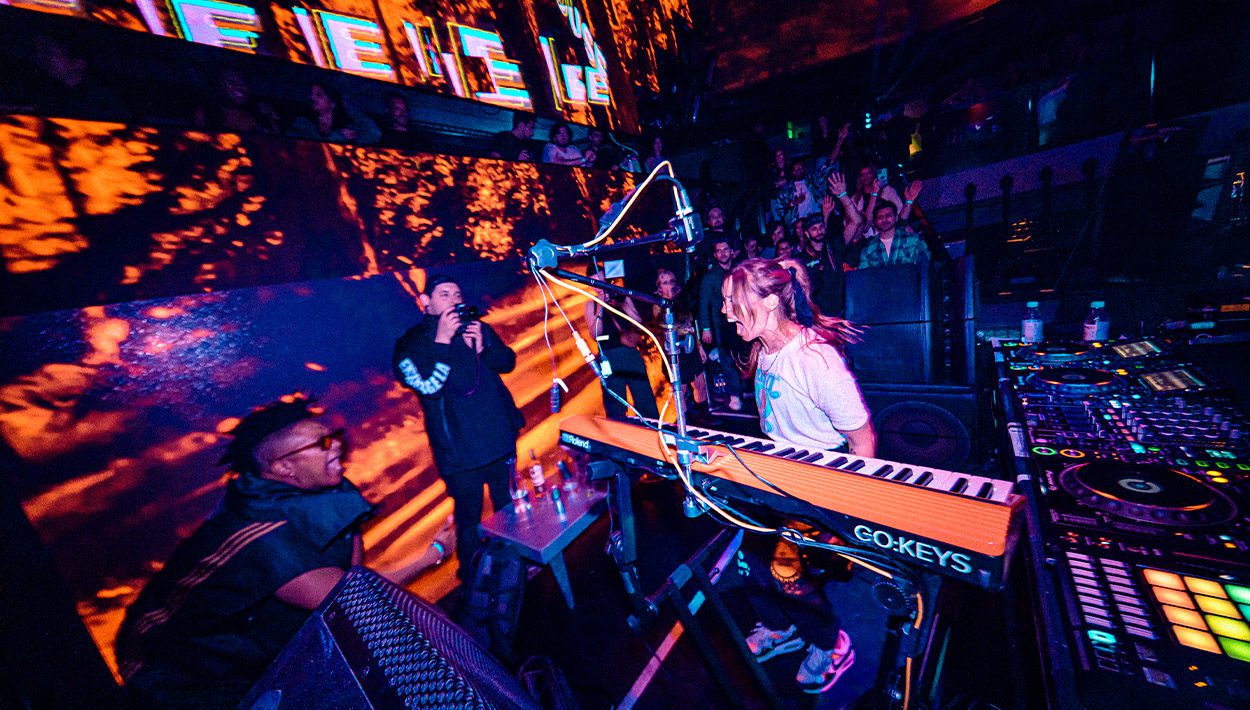
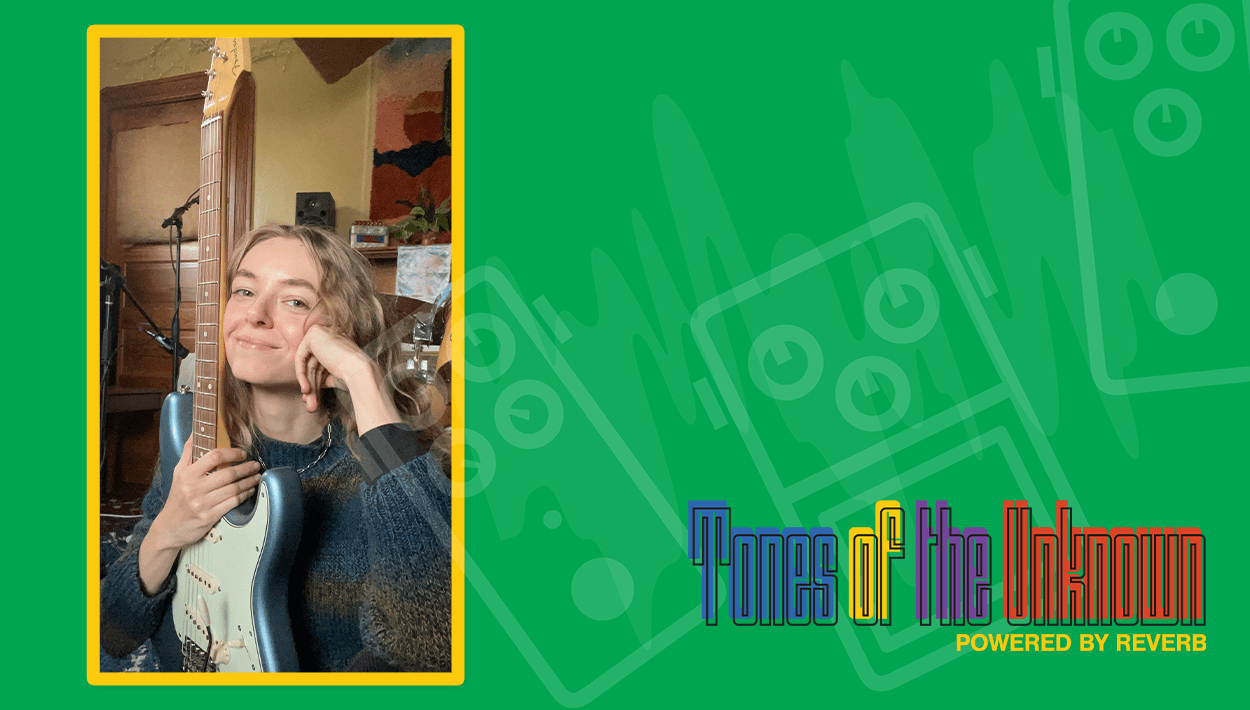

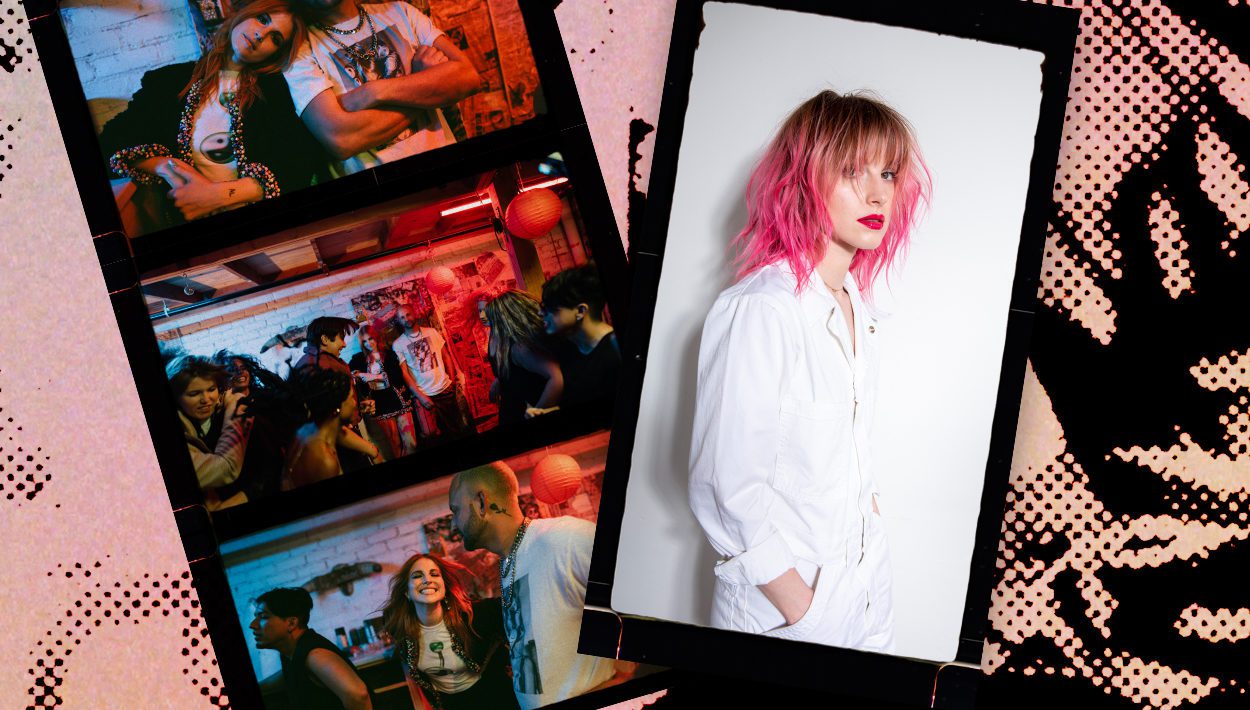
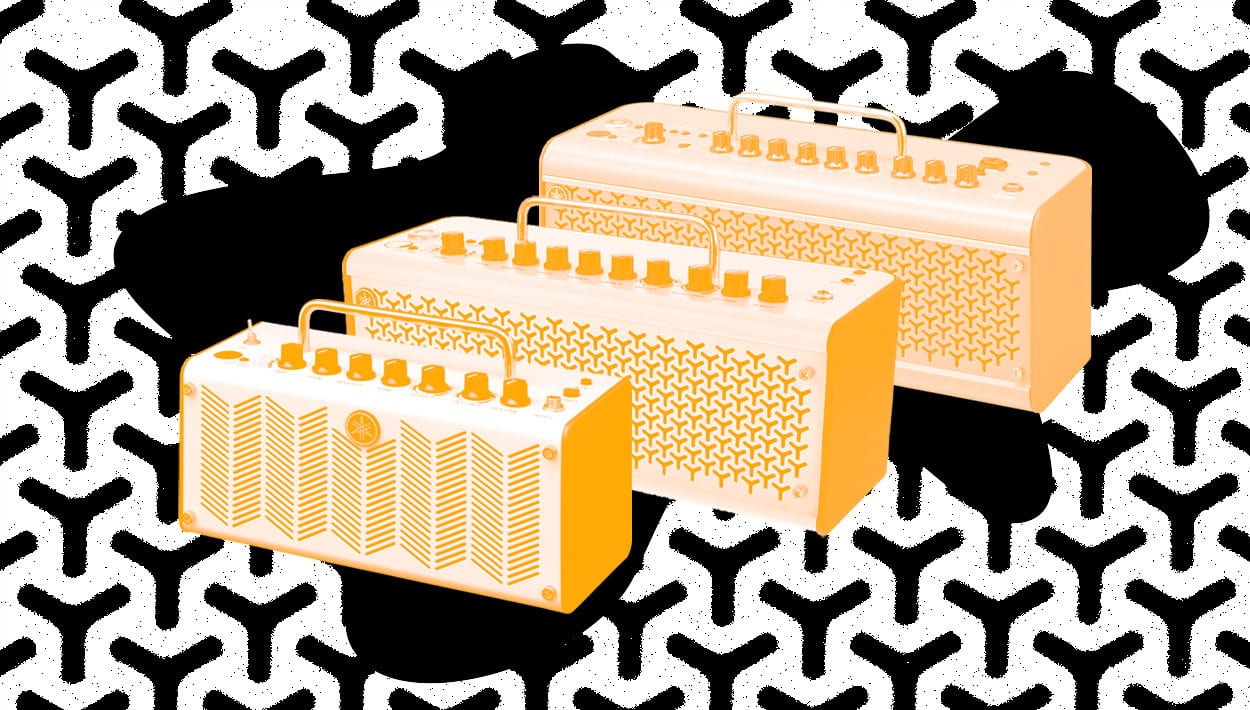

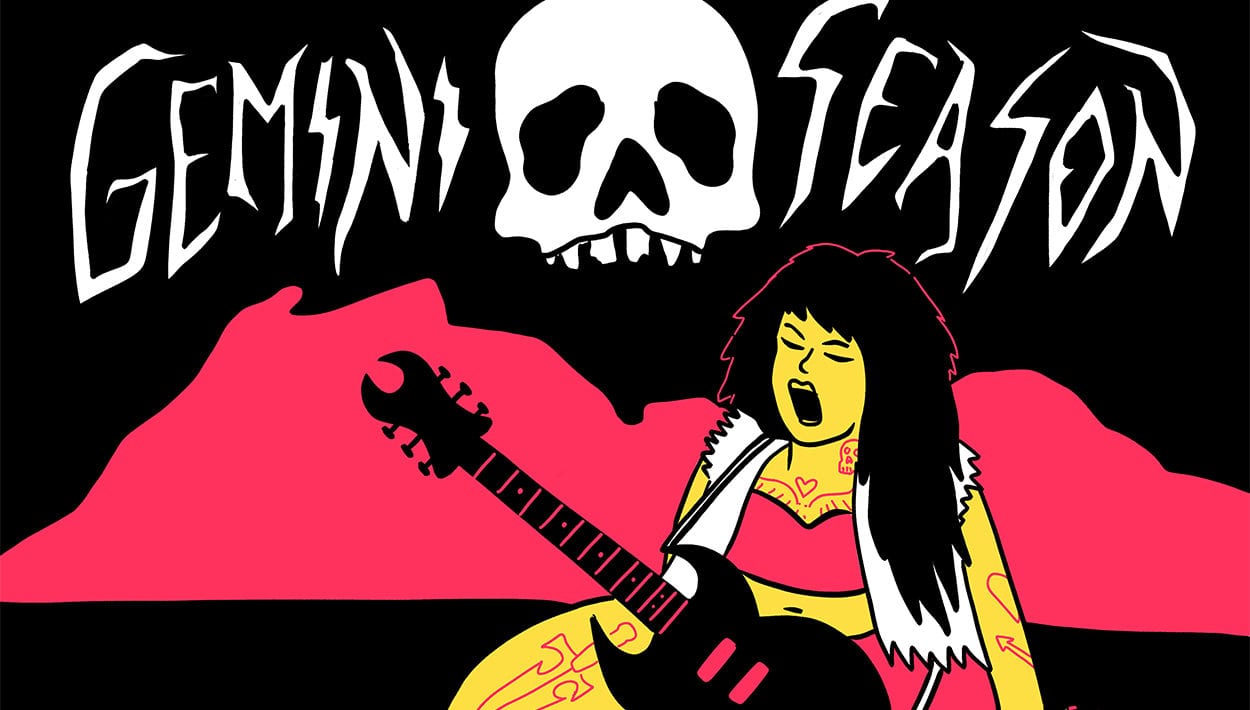


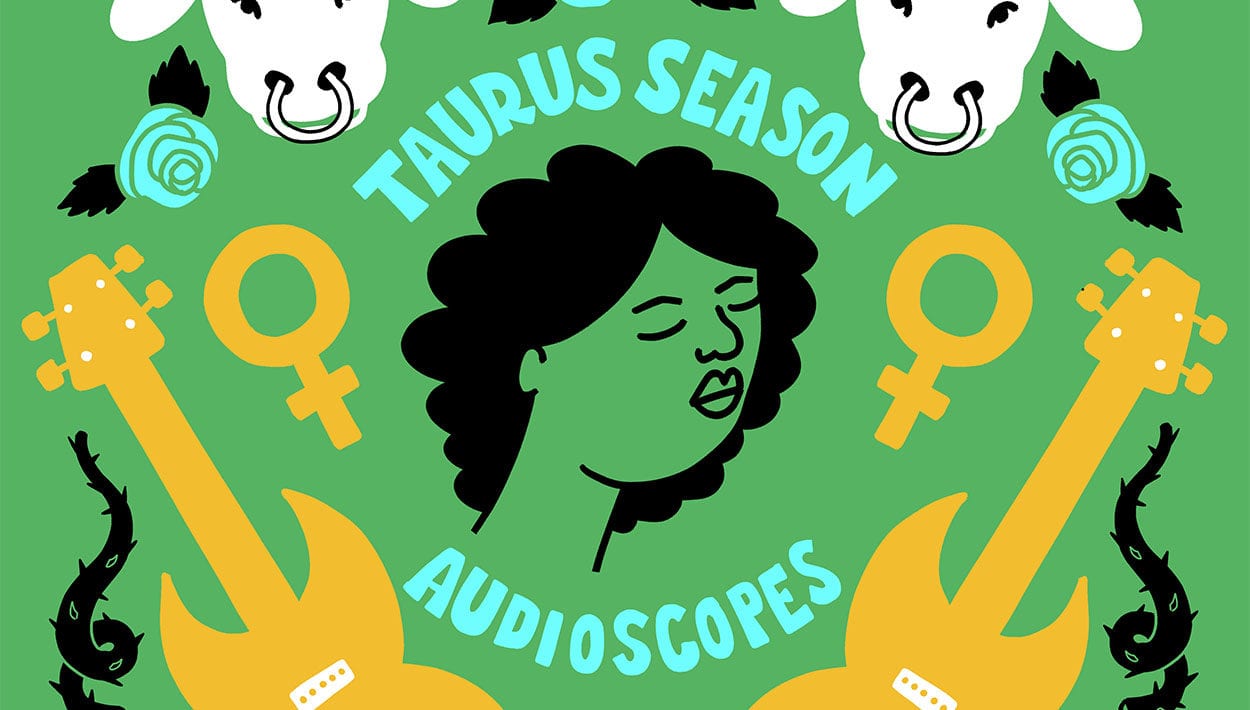


Comments
The piano is unique, very beautiful, I also like this guitar.
Comment by wings io on October 1, 2018 at 1:36 amhttp://wingsio0.com
[…] features an incredible roster of musicians, including Kathleen Hannah, Vagabon, Courtney Barnett, CHAI, Cat Power, Divide and Dissolve, and many more. With long-form storytelling, artist profiles, […]
Pingback by She Shreds Media on May 5, 2020 at 10:28 am[…] There will be a 7” release of “UNITED GIRLS ROCK’N’ROLL CLUB” on September 18 in the UK/EU and October 2nd in the US, which can be pre-ordered HERE. Be sure to check out Hinds third studio album, The Prettiest Curse, released this year on Mom + Pop Records, and CHAI’s 2018 interview with She Shreds. […]
Pingback by She Shreds Media on August 23, 2020 at 9:28 am[…] opened for the Strokes on two days notice for a handful of European shows, collaborated with Chai on “UNITED GIRLS ROCK’N’ROLL CLUB,” and toured the world. This summer, […]
Pingback by She Shreds Media on March 1, 2021 at 12:23 pm